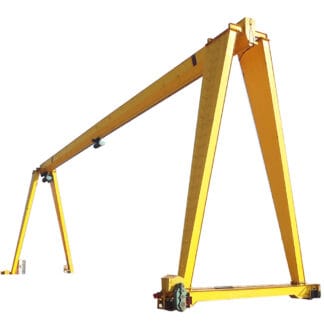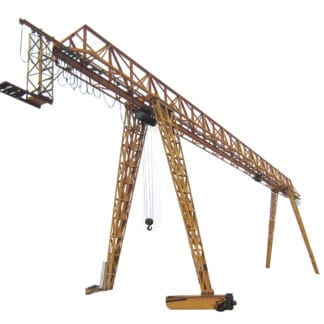Description
Gantry cranes have a bridge that is supported by two a-frame rigid steel legs that rest on the floor. The legs are commonly equipped with casters so crane can be moved to different parts of a building. Some gantry cranes ride along a track installed on the floor, or use a V-groove caster to keep movement in a straight line.
These are typically used for an outdoor application or below an existing overhead bridge crane system. Unlike a bridge crane, a gantry crane does not need to be tied into a building’s support structure—eliminating the need for permanent runway beams and support columns. In some cases, this can result in a significant reduction in material costs and can be a more cost-effective solution compared to a similarly specified bridge crane.
Features
- Increasing work space, and convenient for installation and maintenance.
- Trolley power supply adopts profiled rails, safety slide line and the cable conductive device system.
- Components standardization, seriation and generalization.
- Good operation vision of cab, equipped the internal linkage control console, flexible and comfortable operation.
- Customized according to the users’ needs of working environment, types of power source and the other technical requirements.
- Flexibility: the cranes can be moved even inside the place on a fixed path, and that’s why these are more flexible than regular ones.
- Safe and efficient: These are easy to move and do not require much force because of the presence of casters.
- Can be easily relocated: sometimes, there is no need for permanent installation or the organization can’t afford to install a new piece.





